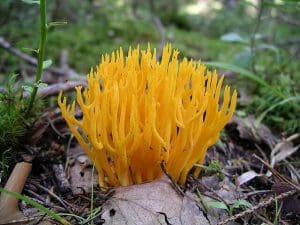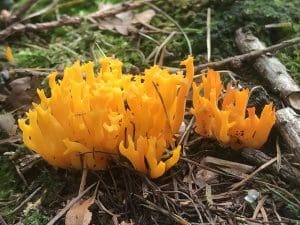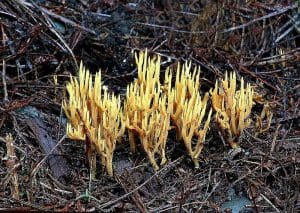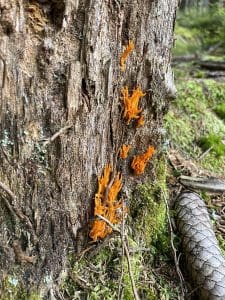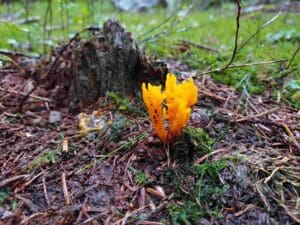Yellow Stags Horn fungus / Summer / Autumn / Inedible
Get ready to be captivated by the beauty and wonder of the Yellow Stags Horn fungus!
Picture bright orange or orange-yellow, greasy, antler-like branches that occasionally fork near the tips, giving this fascinating fungus its distinctive appearance. As we delve deeper, we’ll uncover its unique features, habitat, and ecological role, shedding light on its prevalence in autumn and its unmistakable distinguishable traits.
So, join us as we unravel the hidden depths of this mesmerizing fungus, exploring its taxonomic history, etymology, and more.
Common Names
Yellow Stags Horn fungus
Scientific Name
Calocera viscosa
Family
Dacrymycetaceae
Habitat
They are saprotrophic, and are generally found on decaying conifer wood, usually stumps and roots. It fruits throughout the year, but is most commonly seen in autumn when they really catch your eye.
Description
It is relatively large for a jelly fungus, and can reach up to ten centimetres in height. As the name suggests they are typically orange in colour but some examples can be yellow or even white. The antler-like branches are often forked and when wet they have a sticky, waxy surface.
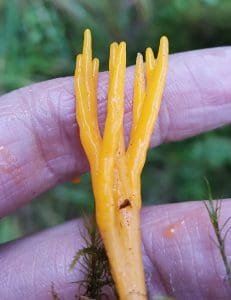
Smell:
No distinctive smell.
Spores:
Black.
Known hazards
No known hazards.
Potential lookalikes
They could be confused with orange/yellow looking members of the Clavariaceae family, looking at the growing medium would help to distinguish these.
They could be confused with some of the Ramaria species of coral fungi, for example the Upright Coral (Ramaria stricta), but the greasy surface of Stags horn is the main distinguishing feature.
Uses
In food
It is not poisonous, but its tough texture and nondescript taste and slightly off putting smell make it unattractive as a food.
However, its striking colour has led to it being used as a garnish on occasion.
References:



